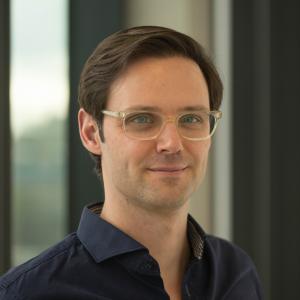Trust, expertise and policymaking
Associated people
British Academy Postdoctoral Fellow Kevin Grecksch had recently been invited by the British Academy to provide the opening remarks to an online seminar on ‘Communicating and supporting inter and multi-disciplinary expertise and knowledge for policy in challenging contexts’. The workshop was part of the workshop series ‘Shape the future. using social sciences, humanities and the arts to shape a positive future’ currently run by the British Academy. Below is a slightly adapted script of Kevin’s opening remarks.
Trust, expertise & policymaking
I think it is fair to say that COVID-19 has seen at least until now a partial return of expertise. Almost everyone now knows what an epidemiologist or virologist does. Governments, journalists and academics were arguing about different models and to some extent scientific knowledge was ‘democratised’, down to people developing a crush on the country’s chief medical advisers (Germany, Spain). However, if we look closely we also saw old, well-trodden paths reinforced. We can be easily fascinated by and fixated on numbers and mathematical models and I cannot remember seeing a social scientist, humanities or arts scholar at one of the daily press conferences. Yes, a crisis requires a swift (medical) response, but we are missing out on reflecting upon potential long-term social and psychological consequences of issues such as the lockdown. One doesn’t need to be a magician to predict that after the medical crisis this will be a social crisis (and I include economics into this because it is, let’s remember, a social science). And we as social scientists can provide answers to some of these pressing questions and inequalities the current crisis laid bare open. In addition, this crisis makes obvious what many still don’t (want) see with the climate crisis, that everything is interrelated.
Knowledge comes in a variety of forms and we should acknowledge that scientific knowledge is only one form and for example local (expert) knowledge is of importance too. We need to pluralise knowledge and make more transparent decision-making.
Which brings me to trust. Without trust any form knowledge and its subsequent communication is worth little or nothing. We saw at the beginning of the Covid-19 crisis how insecure governments can be when it comes to questions of which scientific knowledge to trust (herd immunity vs. flattening the curve). On the other hand a brief slogan (Stay home! Protect the NHS! Save lives!) can work and it did, but also how quickly it can be undermined if that trust is broken in whatever form.
Let me briefly reflect on small BA seed funded project that I am currently working on with colleagues (from the Institute of Development Studies, and two colleagues from DCU Dublin and NUI Galway) and which is trying to tackle some of these issues.* A lot of what I said so far goes down to communication. How we communicate a crisis has a direct effect on how people respond and if they comply or not. How do we plan for, communicate about, and adapt to uncertainties? How do we deal with issues of trust, expertise, and governance when we recognise that much is uncertain? How do we achieve any of this successfully across linguistic, cultural and political divides when global challenges require local solutions?
In our project we look at the issue from the point of view of ‘translation’. Translation can be understood as the transmission of meaning between different social actors, reaching across linguistic or cultural borders. As global challenges cascade into other challenges, translation can be either a source of further uncertainty, underlining linguistic, cultural and cognitive distances; or a useful tool to address uncertainties by mediating between distant perspectives.
These translation exercises reach from science to policy-makers, from policymakers to the public and vice versa. As academics we have our own understandings of words, the public may have others, see for example the weather/climate conflation people make in the climate change debate.
In my research I often work with scenario building techniques, i.e. projecting into the future, based on the question of ‘what could happen?’ Therefore, let me end with a couple of ‘what if’ - question to start off the debate:
- What if we use the positive lessons for our strategies against future pandemics, climatic changes, poverty etc.?
- What if we use this to start off a real dialogue between the disciplines?
- What if we use this to continue and deepen a dialogue between different forms of knowledge (scientific, local, etc.)?
* The thoughts expressed in the following two paragraphs were collaboratively developed between Shilpi Srivastava (IDS), Patrick Cadwell (DCU Dublin), Andrea Ciribuco (NUI Galway) and Kevin Grecksch (CSLS Oxford)


